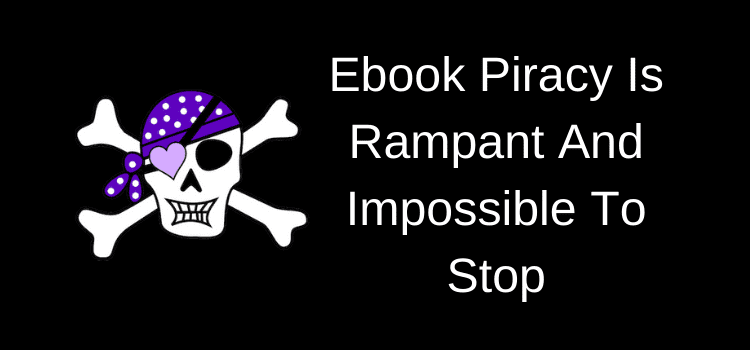
Have your books or ebooks been pirated? Probably, because ebook piracy is so common now.
When I released my last book, God Has Gone Fishing, I made sure not to list my new title on Google Books. The problems regarding book piracy are well-known on the site.
However, it made no difference at all. The book and ebook pirates got to work very quickly without Google’s help.
Almost every book I have published has been pirated, listed on torrent websites, copied in PDF, illegally downloaded, or offered under another author’s name.
Ebook piracy is fast

In an earlier post, I wrote about the problems with rampant piracy on Google Books and Google Play.
In it, I mentioned that Google had taken little action to stop the fraudulent abuse of copies of books, especially in the United States.
But back to more recent events and my pirated book.
It took almost no time at all for pirates to create a free ebook download.
I did a quick Google search for my new ebook title a few weeks after publishing it.
The following pirate sites offered my ebook, with listings appearing on the first search web page.
I didn’t bother looking any further.
Please note that I have not added links to these ebook piracy sites because I refuse to give these book pirates any traffic.
On top of that, going to these sites can risk getting a computer virus. Yes, some of them can be very nasty.
Examples of ebook piracy
It doesn’t take long at all for pirates to get to work.
All it takes is a quick online search to discover sites offering illegal copies.
Most commonly, they offer books in PDF and Epub.
Here are three quick examples I discovered of pirates at work with one of my books.
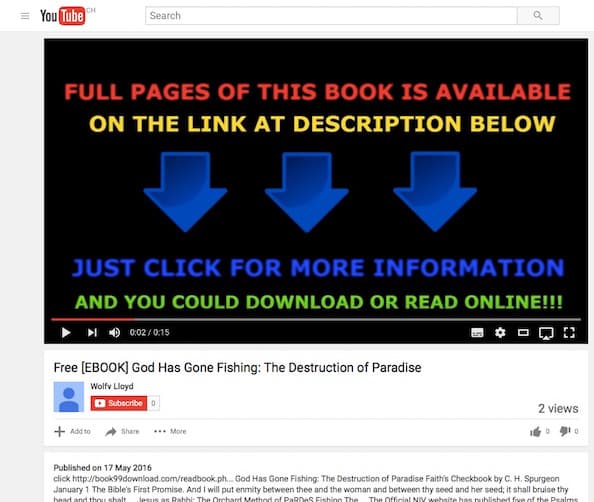
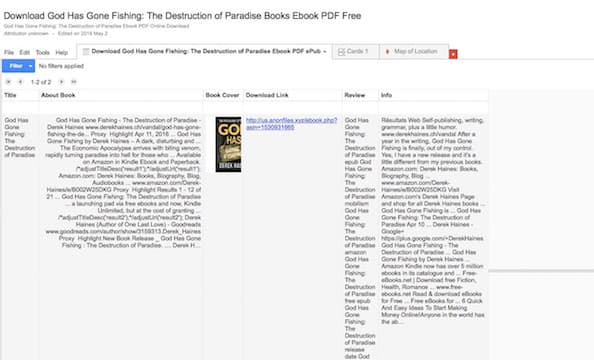
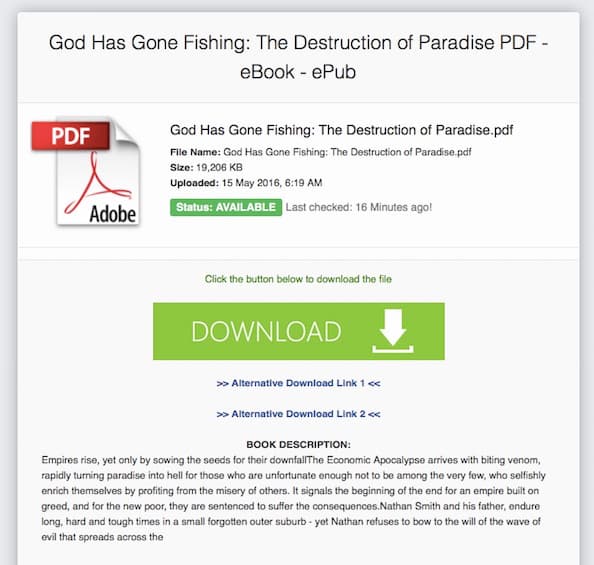
The staggering aspect is that these downloads became available within a few weeks after I published this book.
I don’t claim to be a popular author at all.
So, I shudder to think of how many illegal copies of ebooks and books by famous authors are pirated every day of the week.
However, I would imagine that it is at least thousands.
Another point to consider is what is packaged within these book files.
It is not uncommon, for free PDF ebooks in particular, to contain malware or even viruses.
Yes, some readers like free, but it can sometimes come at a cost.
What can you do if your ebook is pirated?
How can you protect your intellectual property? Very little, I’m afraid, apart from taking it on the chin, feeling grumpy for a while, and then ignoring it.
But if you are keen to try to stop ebook piracy of your books, you can try a few avenues.
You can use a WhoIs lookup to try to find the email address of the registered owner of the site.
You can then send an email asking to remove your book or books. But in most cases, you won’t receive a reply.
You could also try to find the name of the hosting company and then contact them with your complaint.
You can also check to see if the hosting company complies with the Digital Millennium Copyright Act (DMCA).
If you want more details about these avenues, you might want to read this detailed article on ebook piracy.
But you need to be ready to do a lot of work that may not end in a positive result for you.
You have to decide if pirated ebooks are costing you a lot of sales.
In most cases, you are not losing sales because very few people download from these sites due to the well-known risk of viruses.
Does DRM help?
Most online retailers use DRM (Digital Rights Management) to protect their ebook businesses.
However, it only takes a minute or two to strip DRM from an ebook, including Amazon Kindle ebooks. Then, the pirates can make a copy in PDF, mobi, or epub.
Technology makes it easy for would-be book pirates. In fact, one says, “I can get any novel I want in thirty seconds.”
In another twist to the tale, illegal downloading and piracy have reduced over the years.
Music, movies, and games have all seen declines in piracy and download rates. However, ebook piracy increased over the same period.
For these pirates, it’s all too easy to download ebooks and steal an author’s work.
They can then read the book for free, or worse, offer it on sharing sites for ebooks.
Related: Forbes reports that ebook piracy costs authors and publishers $3oo million annually.
The problem is not only ebooks
Here is an example of one of my earlier paperback titles that a pirate offered.
And by the way, it is still on Google Books, even though I lodged a takedown request with Google years ago.
If, by some chance, I had succeeded in getting this book taken down, it would be like playing whack-a-mole.
Another one would appear to take its place.
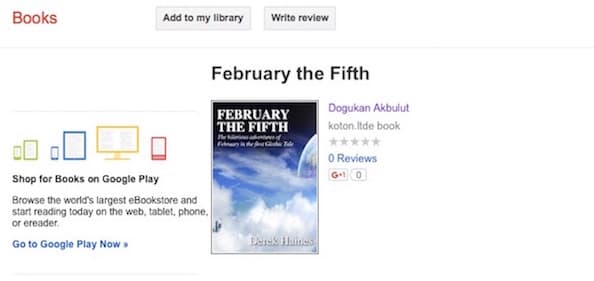
Have your ebooks or physical books been pirated?
If you’re not sure, you only need to do a Google search.
But then again, what’s the point?
Because quite honestly, there is nothing much you can do about pirated ebooks or even counterfeit books on Amazon.
But ebook piracy is not all gloom and doom
On a positive note, though.
You could describe people who chase free ebooks as hard-nosed, addicted hunters and collectors of anything and everything free.
They are highly unlikely ever to pay for anything, especially ebooks. So it’s not a lost book sale.
Also, some sharing sites are sources of viruses.
Most modern web browsers now block these sites due to this risk. But there is an issue with malware in PDF ebooks.
So yes, some will take all these risks to get a pirated copy of your ebook and download it for free.
But they will probably never read it because all they want to do is fulfill their addictive thrill of collecting free stuff.
Public libraries are full of free books to read. But for freebie hunters, there is no fun in going to a library.
It’s all rather pointless. Well, not really.
I like dark clouds with silver linings. For me, in this case, it is that these pirates inadvertently give me a weird kind of book promotion.
I get extra Google Search listings, name and title recognition, and occasionally, perhaps even real ebook sales as a result.
Most readers would never use or access dodgy sites for free ebooks.
But they may see my name and title in a search result list on Google. Then, pop over to Amazon out of curiosity.
Any publicity is good publicity.
Related reading: Amazon Self-Publishing Problems And Solutions For Authors

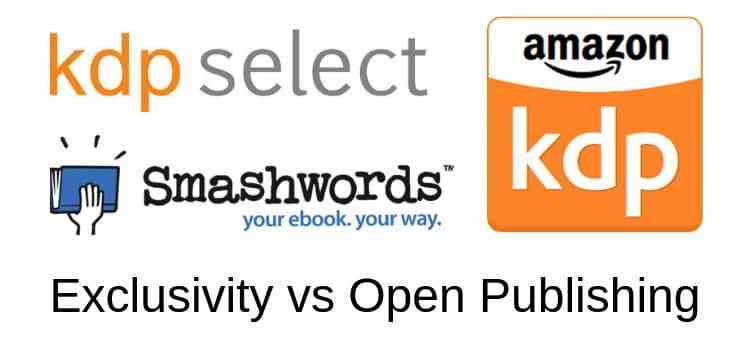


I’ve just stumbled on my ebook being pirated, I found out by Googling and seeing that sites I’d not heard of were offering my book as a free download. I’ve done all of the above, Contacted Google to report it, emailed the sites admin, contacted the domain provider etc. I even posted a warning that my book had been stolen all over the author forums and publisher groups on Facebook. There is little more I can do and it’s a drop in the ocean of a much larger problem. I don’t over-charge for my ebooks, although I do see fellow authors over-charging for theirs, sometimes asking the same price for a 100-page ebook that another offers a 300-page ebook. I, as a reader refuse to buy those books as I set myself a max ebook spend per book. However, there is Kindle Unlimited where you can fill your boots with ebooks for a reasonable fee, do those people like me who don’t want to overspend do that? Sometimes, but others, they search the web instead. I’m disappointed that the internet has lowered itself to be an enabler of the corrupt and dishonourable. My work isn’t well known, and I sell only on Amazon, and I really don’t make much. This book only has 32 comments on it so why it was selected for pirating is odd in itself as it’s not a best seller. Do I find it flattering, not really, do I wish bad karma on those who have download it? Hell yes! Because I know that the two sites that have posted my book are both infected with malware. That is the only comfort I have in all of this and some of my author friends have had more than just one book stolen. My friend thinks one of her ARC readers leaked hers. I don’t do ARCs, and this is putting me off going down that route. But I won’t be scared off writing because of a faceless pirate who wants to make a quick buck.
Thanks for this very informative article. I was completely unaware of this situation. I will now check to see if any of my books have been pirated.
Here’s a puzzle for you…as an author myself, I have found my book available online in supposed kindle format (or pdf) and for free download, just as you have.
But what is different and inexplicable to me, is that I purposely NEVER made it available via pdf. In other words, you can only buy the book in paperback.
How then is it available via pdf?
I have two theories. I’d be interested in your thoughts on how realistic they are.
1.) If one attempts to download the pirated copy, they will actually only download a virus infested PDF file (and I wish them nothing but agony). The sites I have found my book on are domains out of eastern europe.
2.) If the pirated download is indeed an electronic version of a paperback only book, then my tinfoil hat goes on and I conclude that someone at the printing level (which DOES have access to an electronic version) has sold the file to a third party. I feel this second reality is far from likely because this is not a high volume book. Unless the printer basically sold his entire inventory (risky) it just seems they’d never pick this title. We’re not talking Harry Potter.
Thoughts? (And my condolences for your own situation. Creative types get the shaft far too often). J.
No, they just scan and then edit via software to look like actual ebooks.
The pirates likely used a converter program like “Ebook DRM Remover.” There are programs that can remove the DRM of a Ebook or Kindle Book and turn it into a standard PDF that will work indefinitely, not be tethered, and the file is copyable, emailable, or uploadable to a website in which the downloads will work and the person can open the converted book with Firefox, Adobe Reader, or Adobe Acrobat, among other programs.
Just purchased an pdf book for a killer deal and got suspicious when it would only download to Google Drive and not directly to my device. Didn’t notice that it is a pdf of an eBook that retails at $184 on Amazon in a different format. All in all, pretty sure I purchased a pirated copy and have deleted if from my devices.
Does this look suspicious to you?
Interesting piece of information. Makes me want to look for mine, but as you said, “what’s the point.”
For what it’s worth I have been using Blasty to get rid of sites illegally selling my books. There have been a number of reports as to if this site is a scam or not. At present time it appears ok but time will tell if it is or not.
Perhaps misery loves company. The comments on this discussion seem to combine acceptance of book piracy with some impressive tales of determination with minimum results. My pet peeve tonight is that Google makes you fill out different forms for YouTube violations and Google search engine results. Why? It just seems like one more annoying aspect of a bizarre, frustrating situation.
BTW, if I had only received two dollars for each of these thousands of illegal downloads of my ESL conversation books, my bank account would be far healthier. Live and learn.
We share a common pursuit, Eric. I made most of my ESL materials free on my own website, hoping to at least earn a little in advertising revenue. It was a cunning plan, that didn’t work at all.
Since I discovered that two of my e-books have been pirated I kept reporting them to Google and other reporting sites and managed to have the sites removed. Of course sooner or later they reappear in the search pages, in lesser number though, or in You tube who is very good at removing them. I believe that if all authors who have their books pirated would keep reporting to Google in the end they would stop pirating because pirates are few and authors are many. As they say union makes strength.
Why are ebooks pirated? Aside from the obvious here are a couple of major reasons.
1) If one buys a hard copy of a book one can lend it – many times over. Or, one could re-sell it and recover part of its cost. It sould be donated or simply displayed on one’s bookshelf. With an ebook that is difficult or impossible. So an ebook does not have near the value of a hard copy.
2) Hard copies of books require expensive paper, printing, binding, and storage facilities. Then it must be shipped vast distances to get it to the marketplace and freight is not cheap these days. Then the book must sit on a shelf requiring valuable retail space and may sit there for months, if not years. That space is costly and in most cases the retailer must employ a manager and sales people whose salaries form part of the cost of that book. Then some copies may never be sold which means that ths sopys that are sold must cover the cost for those who don’t sell. Then there is a disposal cost, because we don’t get to throw away things for nothing anymore. An E-book on the other hand requires none of that.
So, since an e-book has considerably less value and can be produced and sold at a fraction of a hard copy how is it justified to sell the e-book at nearly the same price as the hard copy? That outrageous pricing is a huge incentive for people to download pirated copies. Publishers greed drives people to these sites.
There are positive aspects to those pirate sites as well. Many people who download a pirated book would have never paid the full price to purchase the book in the first place. However, after reading one book some will want to read more by that author. Since many books are NOT available on p2p sites those people then will purchase that author’s other books from a retail site.
Several years ago I picked up an Ian Rankin book from a discount bin for $2.99 and since went on to purchase all of his other books. But without that first cheap book I would never have spent several hundred dollars on his other books.
Furthermore, if an authors book has been pirated that usually indicates that it is a popular book and pirated downloads provides a wider circulation which results in more exposure for the book and the author. Since the vast majority of people do not download pirated ebooks, that added exposure will help the author become better known and promote the sale of more books.
One might also take issue with the use of the word ‘pirated’ when one refers to the peer-to-peer file sharing of books. Are those peer-to-peer sites not very similar to what we used to call public libraries?
So true. Why would you pay a price that is almost as expensive as a physical hardcover for a digital ebook? It just doesn’t makes any sense.
If authors or publishers wants to get rid of piracy, they should lower the ebook price. Just look at Steam and how it almpst eliminated piracy.
Steam did not almost eliminate piracy by making products cheaper, Mr. Price. They made it technically impossible or difficult to make pirated copies.
Eric, I for one am not bothered much by one reader pirating a book in order to read it. Much more worrisome is one thief downloading the book in order to upload it to sell it, or offer free downloads as bait to a malicious site, or selling it after changing the title, or facilitating piracy by a lot of other readers. Your reasoning that a stolen book might interest the thief in buying a second book by the same author — would you excuse a bookstore hard-copy theft on the same grounds? I hope not! You are correct that a printed book costs more to produce than a digital copy — but not by much. Printed or digital, all books have certain costs: the author’s time, hired copy editing, book design, cover design, page layout, ISBN registration, maybe indexing, maybe rights to use illustrations, and probably the costs of a website, marketing, and advertising. If you look online for a book printing quote, you’ll find that a paperback (whose page count and size match $15 books in a store) can cost $2-$3 for as few as 250 copies.
Some ebooks may be priced similarly to the physical book, but many published through small, independent publishers like mine are available at a much lower cost. I’m not sure how much having my YA fantasy The MirrorMasters pirated has helped its exposure, but since it’s available on Amazon for only 99 cents, it’d be awesome to continue to earn a little income for its creation and support my publisher, who took a chance on putting it out into the world,
A pirate site taking and offering your book to others for free isn’t at all the same as your book being offered in a public library. Here’s why. A library pays your publisher for the ebook copy they offer, so you as the author are able to earn a little bit in royalties for that sale. And the publisher who supported you also benefits. Plus, bonus, the reader gets to borrow the copy legitimately and doesn’t have to worry about a device getting messed up by malware.
For any book pirates out there reading this :), I just want to leave you with one final thought. If you take a book from a pirate site, please keep in mind that the books are there without the author’s permission. If you take, read, and enjoy, then also give back to honor the many hours of love, dedication, and hard work the author poured into their creation to bring it to you. Give back in support of the author by purchasing a copy or requesting that your local library purchase it for their collection, and leaving a review on Amazon and Goodreads.
For genre fiction, yes, pirated copies probably do not reduce sales because the downloader would not have bought the book. But what about potential textbooks? My next book could be assigned in college creative writing and playwriting classes, but if I publish a digital edition, I have little doubt that an instructor or a student would simply reproduce multiple copies (pdf or on some college photocopier). That piracy would certainly replace some sales. So I feel limited to producing a print edition (even then, of course, a single print copy could be photocopied for the whole class). I was a college professor, and saw rather a lot of well-intentioned photocopying by a few colleagues who were sympathetic about their students’ book budgets, including photocopying from “examination copies” provided free by the publisher to allow instructors to decide whether to assign the book.
So glad I’m not the only one who’s come up with this conclusion. All of my books are pirated, and at first I used to go through the trouble of issuing takedown notices but foind it to be a waste of time and energy. However, I got one response from a piracy site that admitted they did not actually have my book file and it was a way to generate traffic to their site — so yes, sometimes it really IS free advertising. There is an entire culture of pirates that will do anything to get their entertainment for free (movies, music, games, books), and there is no stopping them.
Thanks again for this post!
Best we take the silver lining, Helen! It’s publicity.
Another full-time but not highly ranked author here – just wanted to add that the new thing I’ve found that really makes me laugh is posting links to pirated books on Youtube. Youtube’s good about takedown requests (I had it removed within hours) but it was back up again less than a day later. On the upside, the site itself appears to be a phishing scheme, so I take small solace in hoping that whoever does pirate the book ends up with a nice little virus for their efforts.
And you’re right–folks who are chasing pirated books online… they were never going to buy our books anyway. It’s not a lost paying customer. It’s someone who never would’ve bought it in the first place. Which is a silver lining, as you say.
Thanks for your input, Matthew. It is good to know that Youtube reacts so quickly, but alas, the scammers are just as fast. In the end though, as you say, those who chase pirated ebooks get their just desserts,
I think you may be right, Dan. Whereas P2P used to be about simply getting stuff for free, it has now become more a scammer’s playground and is fraught with risks.
It may be little comfort, but a lot of the sites purporting to offer free copies of paid books don’t actually have a copy of your book to begin with. Many which readily turn up in web searches either redirect the wannabe pirate to a legitimate subscription site like Playster, which doesn’t have your books to begin with, and collect an affiliate fee on signup, or fake subscription sites trying to look legitimate, which are happy to take the pirate’s credit card info and run with it despite having no copy of your book to provide either. It’s much harder and more dangerous to break into book piracy than it used to be, especially with Scribd being mostly reformed now. I don’t wish pirates any harm, but maybe some of the more casual ones who pirate only some of their reading and buy the rest, may get tired of the hassle and the risk and you’ll become one of their paid-for, must-read authors.